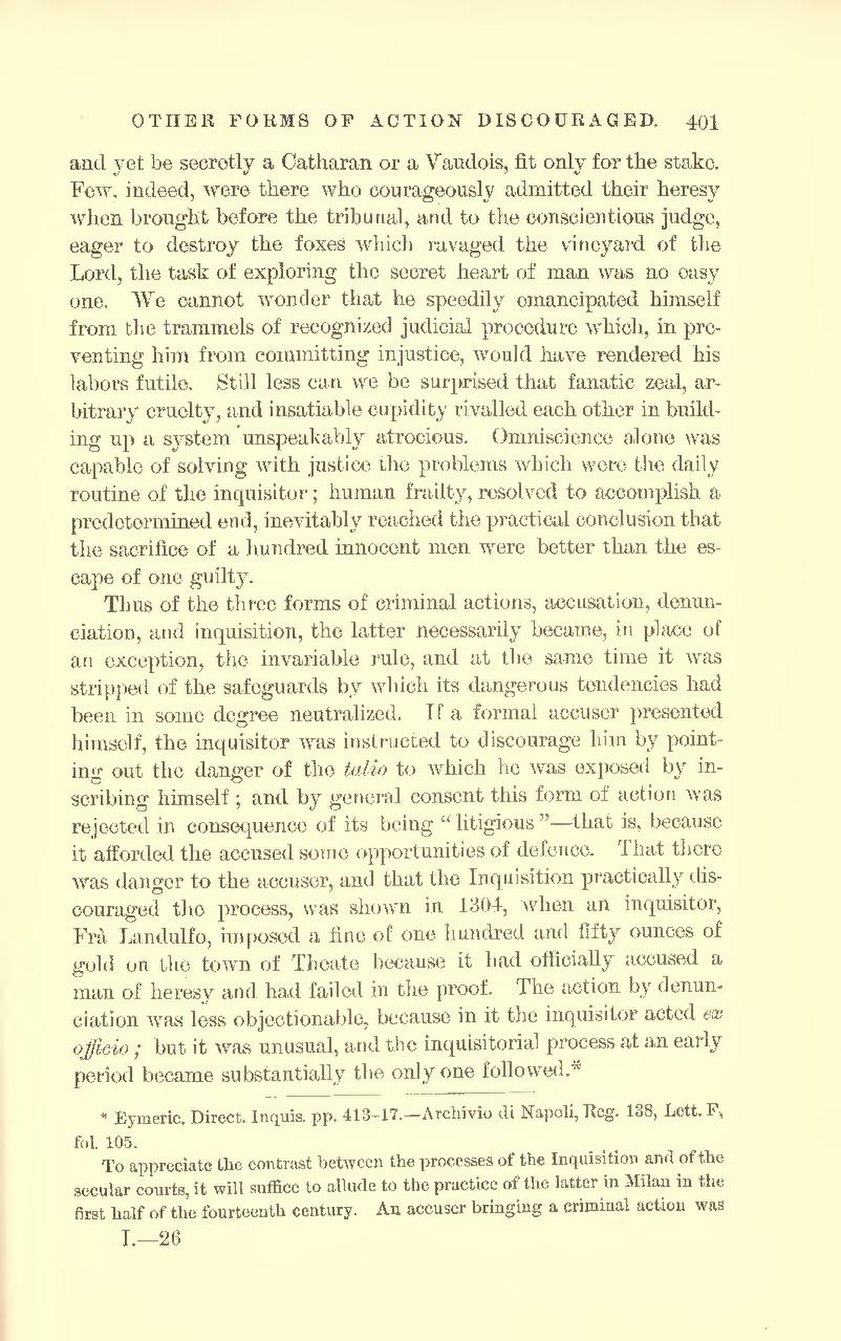and yet be secretly a Catharan or a Vaudois, fit only for the stake. Few, indeed, were there who courageously admitted their heresy when brought before the tribunal, and to the conscientious judge, eager to destroy the foxes which ravaged the vineyard of the Lord, the task of exploring the secret heart of man was no easy one. We cannot wonder that he speedily emancipated himself from the trammels of recognized judicial procedure which, in preventing him from committing injustice, would have rendered his labors futile. Still less can we be surprised that fanatic zeal, arbitrary cruelty, and insatiable cupidity rivalled each other in building up a system unspeakably atrocious. Omniscience alone was capable of solving with justice the problems which were the daily routine of the inquisitor; human frailty, resolved to accomplish a predetermined end, inevitably reached the practical conclusion that the sacrifice of a hundred innocent men were better than the escape of one guilty.
Thus of the three forms of criminal actions, accusation, denunciation, and inquisition, the latter necessarily became, in place of an exception, the invariable rule, and at the same time it was stripped of the safeguards by which its dangerous tendencies had been in some degree neutralized. If a formal accuser presented himself, the inquisitor was instructed to discourage him by pointing out the danger of the talio to which he was exposed by inscribing himself; and by general consent this form of action was rejected in consequence of its being "litigious" - that is, because it afforded the accused some opportunities of defence. That there was danger to the accuser, and that the Inquisition practically discouraged the process, was shown in 1304, when an inquisitor, Frà Landulfo, imposed a fine of one hundred and fifty ounces of gold on the town of Theate because it had officially accused a man of heresy and had failed in the proof. The action by denunciation was less objectionable, because in it the inquisitor acted ex officio; but it was unusual, and the inquisitorial process at an early period became substantially the only one followed.[1]
- ↑ Eymeric, Direct. Inquis. pp. 413-17.-Archivio di Napoli, Reg. 138, Lett. F, fol 105
To appreciate the contrast between the processes of the Inquisition and of the secular courts, it will suffice to allude to the practicc of the latter in Milan in the first half of the fourteenth century. An accuscr bringing a criminal action was
